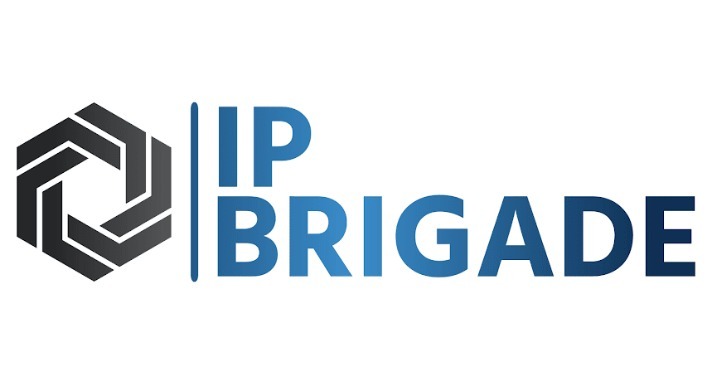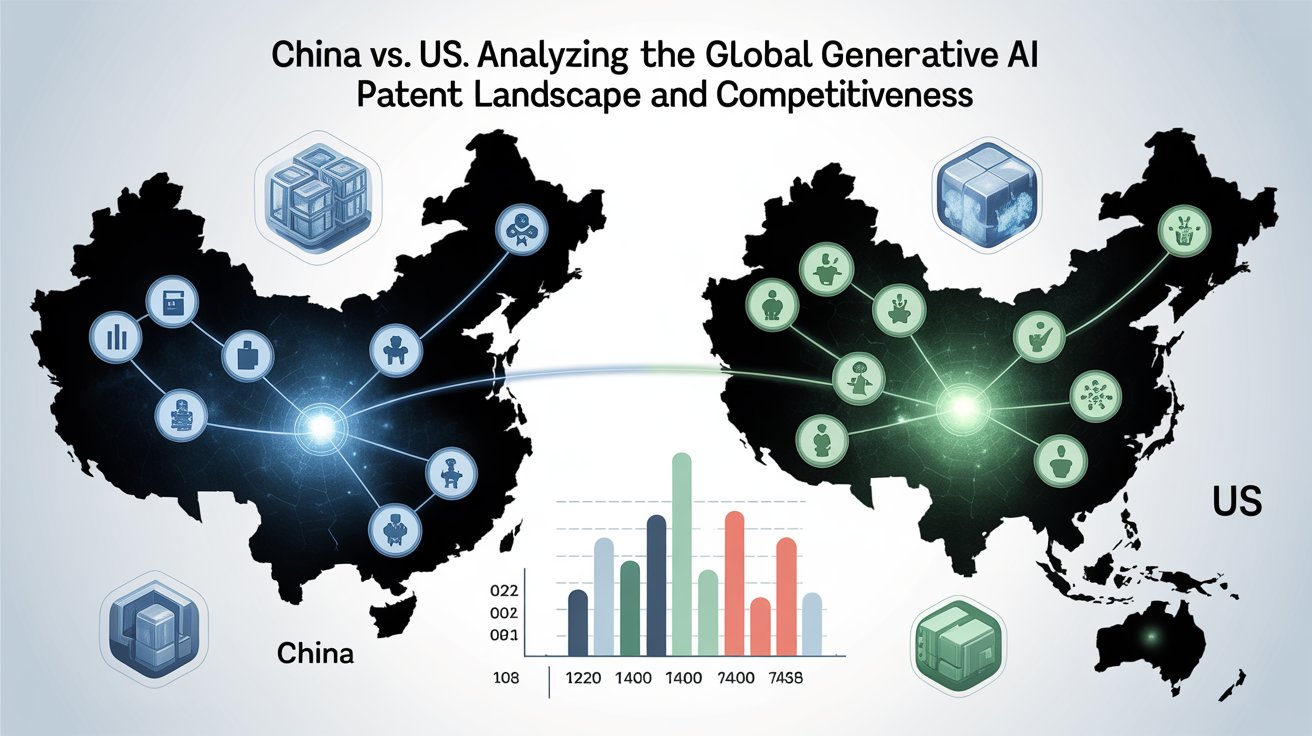As artificial intelligence (AI) transforms industries and economies, a new frontier of innovation has emerged—Generative AI patents. From creating original art and code to designing molecules and legal documents, generative AI technologies are revolutionizing how value is created. Amid this transformation, two global superpowers—China and the United States—are locked in a fierce competition to lead in Generative AI patents, shaping the future of global technology, intellectual property, and economic power.
The Surge of Generative AI Patents
The last five years have witnessed an unprecedented surge in Generative AI patents worldwide. Fueled by advancements in transformer architectures, large language models (LLMs), generative adversarial networks (GANs), and multimodal AI systems, innovators are filing patent applications at record speed.
According to the World Intellectual Property Organization (WIPO), AI-related patent filings have grown more than 800% since 2017, with a significant portion attributed to generative technologies. Both China and the U.S. are driving this growth—but their approaches and outcomes differ profoundly.
While China emphasizes large-scale filings supported by government incentives, the U.S. focuses on innovation depth, commercial potential, and enforceability. Understanding these strategic contrasts helps innovators and businesses better navigate the global landscape of Generative AI patents.
China’s Strategy: Scale and State Support
China’s patent strategy reflects its broader ambition to become a world leader in artificial intelligence. Under national initiatives such as “Made in China 2025” and the “Next Generation Artificial Intelligence Development Plan,” the Chinese government has prioritized AI as a pillar of national competitiveness.
Key Features of China’s Generative AI Patent Strateg
Volume-Centric Growth
China now leads globally in the number of Generative AI patents filed. Universities, research institutions, and tech giants such as Baidu, Huawei, Tencent, and Alibaba are filing aggressively across multiple AI domains.Institutional and Academic Powerhouses
Unlike the U.S., where corporations dominate, China’s academic and state-backed entities contribute heavily to AI patent output—covering everything from generative design algorithms to autonomous robotics.Infrastructure Focus
Many Chinese filings emphasize hardware acceleration, algorithm optimization, and chip design—core enablers of AI scalability.Domestic Orientation
Most filings are made within CNIPA (China National Intellectual Property Administration), with limited but growing expansion into the international market.Government Incentives
Subsidies, recognition programs, and IP filing rewards have fueled rapid growth, though analysts question the global enforceability and novelty of some filings.
Despite its impressive scale, China’s patent landscape still faces scrutiny regarding patent quality, originality, and international enforceability. However, its progress in research output and AI infrastructure gives it undeniable strategic leverage.
The United States: Quality, Innovation, and Market Readiness
The United States takes a fundamentally different approach. Rather than maximizing volume, it focuses on high-impact, commercially viable Generative AI patents. The U.S. Patent and Trademark Office (USPTO) enforces strict standards of novelty and non-obviousness, ensuring that each granted patent represents a genuine technological advancement.
Hallmarks of the U.S. Approach
High-Quality Innovation
U.S.-based filings prioritize originality and practical applicability. Major players like OpenAI, Google, Microsoft, IBM, NVIDIA, and Amazon are leading this wave of Generative AI patents, focusing on model architecture, training data efficiency, and interpretability.Cross-Sector Integration
American innovators are filing patents that extend beyond software—impacting industries such as biotechnology, fintech, and law.Commercialization Focus
Many U.S. patents directly correlate with real-world products—such as chatbots, image-generation platforms, and code-writing tools—turning IP into tangible market value.Clear Legal Framework
The USPTO’s AI-specific examination guidance helps inventors clarify claims around AI-generated outputs and algorithmic contributions, strengthening confidence in Generative AI patents as enforceable assets.
Comparative Analysis: China vs. United States in Generative AI Patents
Metric | China | United States |
Patent Volume | Global leader in filings | Second globally |
Patent Quality | Moderate to variable | High and consistent |
Policy Support | Strong, centralized | Supportive, decentralized |
Commercialization | Emerging | Advanced |
Cross-Industry Integration | Infrastructure-heavy | Application-driven |
Global Enforceability | Limited | Strong |
The data reveals a fascinating contrast: China’s strength lies in policy-driven scale, while the United States maintains an edge in legal precision and global market adaptation. Together, they dominate nearly 75% of global Generative AI patents, setting the direction for future innovation.
Strategic Implications for Innovators
The escalating patent race underscores the global shift toward intellectual property as a national asset. For startups, R&D teams, and investors, this trend offers both challenges and opportunities.
Key Takeaways
Develop an International IP Strategy
To stay competitive, innovators must secure Generative AI patents across multiple jurisdictions—especially in the U.S., China, Japan, and Europe—to ensure global enforceability.
Learn more about Global Patent Search and Filing Services.Prioritize Quality Over Quantity
Patent offices worldwide are tightening standards for AI inventions. Strong claims backed by real-world use cases and technical details will carry more weight than high-volume filings.Stay Updated on Policy Evolution
As regulatory frameworks evolve, understanding regional differences in patent eligibility is essential. You can refer to the European Patent Office (EPO) AI Guidelines for Europe-specific insights.Conduct Patent Landscaping
A thorough Patent Landscaping Analysis identifies white spaces, competitor portfolios, and collaboration opportunities—critical for positioning in the Generative AI patents ecosystem.
The Future of Generative AI Patents
Emerging areas such as AI-generated drugs, synthetic data creation, and autonomous code development will likely dominate the next phase of Generative AI patents. Both China and the U.S. are expected to intensify investment in AI governance, ethical frameworks, and IP enforcement mechanisms.
By 2030, analysts predict that Generative AI patents could represent over 20% of all AI-related filings, making it one of the most competitive IP domains globally. The ongoing U.S.–China rivalry will continue to shape this evolution, influencing policy, research funding, and international IP standards.
Strengthening Your IP Position in the AI Era
For innovators, understanding where and how to file Generative AI patents is vital. Each jurisdiction has unique legal interpretations of AI inventorship, patentable subject matter, and disclosure requirements.
Partnering with professionals experienced in AI-related IP can help you:
Conduct Novelty and Patentability Searches before filing.
Identify freedom-to-operate risks in key markets.
Develop a strategic global patent filing plan.
Respond effectively to office actions and examination objections.
A well-structured IP strategy ensures your innovation remains protected—and profitable—in an increasingly AI-driven world. You can explore IP Brigade’s Services to strengthen your protection framework.
Conclusion
The battle for supremacy in Generative AI patents is not merely a contest between nations—it’s a defining factor in who will control the next wave of global innovation. While China leads in scale and policy-backed filings, the United States dominates in technological depth and commercial readiness.
For innovators, entrepreneurs, and R&D leaders, the message is clear: building a strong, strategic, and globally compliant patent portfolio is no longer optional—it’s a necessity.
Discover more insights on AI Patent Strategies and how to protect your innovation in the age of Generative AI.


